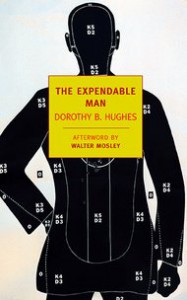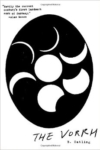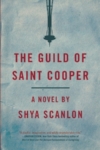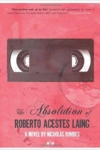At the opening of Dorothy B. Hughes’s 1963 novel The Expendable Man, the protagonist Hugh Densmore is driving his mother’s white Cadillac from Los Angeles to Phoenix for his niece’s wedding. Hugh is a respectable young doctor from a wealthy and well-educated family, finishing a medical internship at a university hospital in Los Angeles, the type of young man one would describe using those clichés that denote the certainty of future prosperity. Despite these markers of privilege, an early encounter with a car of noisy teenagers puts Hugh immediately on edge, and that tension only increases despite his attempts to calm himself. When Hugh picks up a hitchhiking teenage girl only to learn of her death just days after he dropped her off at a bus station in Phoenix, he knows without any doubt that he cannot approach the police with what he knows about Iris Croom, since he would only become their prime suspect in her murder.
Perhaps this is a disingenuous introduction; I’ve willfully withheld information, just as Hughes does. But The Expendable Man is not a “trick novel,” as some classify it: its “trick” — that Hugh is black, not white, unlike many noir heroes — is unveiled very early in the novel, not hidden until the end. It becomes clear that Hugh’s discomfort with the noisy teenagers is due to the racist epithets they yell at him as their car drives by, and that his tense interactions with various service personnel during his trip have a very simple explanation. Hugh’s overwhelming terror at hearing of Iris Croom’s death is entirely rational, especially after his first contact with the local detectives, whose piggish racism only intensifies his fear. Although Hugh feels he cannot tell his family about the girl’s death for fear of ruining the wedding festivities, he finds his allies in Ellen Hamilton, his niece’s roommate and the daughter of a D.C. judge; Skye Houston, a white lawyer preparing to run for city office; and Hugh’s brother-in-law Edward, a successful and well-respected doctor in Phoenix. Arrayed against them are the detectives Ringle and Venner, whose determination to prove Hugh’s guilt overrides any opposing evidence; an anonymous caller intent on viciously harassing Hugh; and Iris Croom’s mysterious Phoenix boyfriend, who may or may not be married but who certainly arranged for her abortion.
Noir is one of those genres, like the steamy romance novel, that has enjoyed more or less continuous publication since its inception. So the question we can ask about the NYRB Classics’ decision to reprint The Expendable Man with an afterword by Walter Mosley is not so much “Why?” as “Why now?” To fail to inject politics into any discussion of noir is both a dishonest proposition and a losing one. The Expendable Man, which makes use of noir’s generic conventions of corruption, resonates only too well in today’s milieu of institutional distrust. Furthermore, Hugh Densmore’s combination of confusion and resignation when confronted with overt racism — confusion because he is used to a near-“invisible” blackness in L.A., resignation because he remembers encountering the same hatred in his childhood — reminded me uncomfortably (and unfairly to Hugh) of many Americans’ foolish desire to believe that we are living in a “post-racial” world. Hughes, however, neatly upends her own inversion of the classic noir trope of good and evil drawn along racial lines: race, in The Expendable Man, is not an indicator of good or evil. In fact, neither is racism, oddly enough, although the “bad” characters are easily identifiable by their overt and ugly bigotry. Hughes has managed a precise illustration of racism as a system and the ways that people can work to undermine the system even as they are implicated in it. When Ellen Hamilton checks into the motel, the desk clerk states in a transparent lie that the only room available is the one Hugh has just vacated. Yet Hugh’s belief in this moment is not that the clerk is participating in racism, but that her friendliness and willingness to help Hugh and Ellen mean she is working with them to undermine the system that prevents her from giving them another room.
Dorothy Hughes’ writing, like the best noir writing, is simultaneously rich and spare, with lush descriptions evoked by choppy sentences and familiar language. “Across the tracks there was a different world,” begins the novel:
The long and lonely country was the color of sand. The horizon hills were haze-black; the clumps of mesquite stood in dark pools of their own shadowing. But the pools and the rim of dark horizon were discerned only by conscious seeing, else the world was all sand, brown and tan and copper and pale beige. Even the sky at this moment was sand, reflection of the fading bronze of the sun.
This is the style of writing made popular by Hughes’ contemporary Raymond Chandler, who famously wrote that hardboiled fiction must be written in the “speech of common men,” yet also wrote astoundingly poetic descriptions of Los Angeles. Hughes, like Chandler, began her literary career as a poet, and this tendency is apparent in her writing (although, unlike Chandler, her poetry was actually considered good).
The beauty of the Southwestern American desert is a deceptive cover for the violence — born of fear and hatred — that lies beneath it in a tawdry, seedy underbelly familiar to noir. There are no satisfying solutions in The Expendable Man, and the solutions that do come seem almost pat and almost saccharine; however, though the solution may not be satisfying, the novel as a whole certainly is. Noir does not present a puzzle to be solved. We can expect no easy answers, because the answer is not the point. Hugh Densmore’s search for Iris Croom’s true killer is not prompted by a desire to apprehend the villain, or even to find the truth. His search is prompted by the apparently selfish desire to save his reputation. Yet Hugh Densmore is not a selfish man; he is, by any reckoning, a good man, who loves his family and wishes to save them from the grief of hearing him branded an abortionist and murderer. His is not the superhuman intellect of Holmes or Poirot; Hugh Densmore is only human. That, in fact, is the truth that hides within noir: it is the stories of the only human, tawdry and stained and yet somehow golden for all of that.
This post may contain affiliate links.








